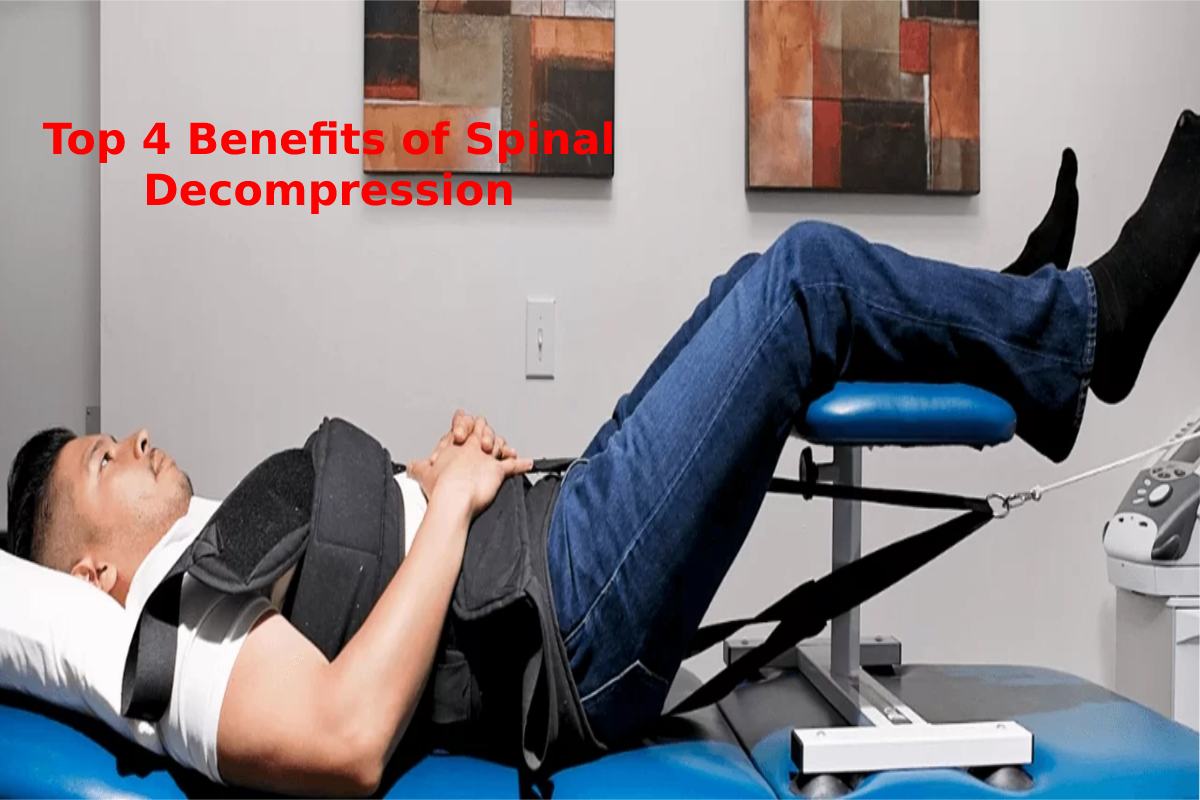Table of Contents
Introduction
Spinal decompression is a non-surgical treatment that benefits discharge back pain, neck pain, and other pain associated with herniated discs, bulges, and other spinal conditions. Performed on a unique lumbar decompression table, non-surgical decompression works by stretching the vertebrae and forcing nutrient and oxygen-rich fluids to the discs to reduce pain and promote healing. Spinal decompression has a plethora of benefits, including the following:
1. Relieves Back and Neck Pain

As your body ages and weakens, back and neck pain is normal. However, it can be the result of a prolonged lack of exercise and poor posture. Pain can also result from an accident or strenuous activity, such as B. lifting heavy objects or working out with incorrect posture.
Whatever the cause of your pain, spinal decompression is an invasive method that can relieve pain. It relieves stress on tight, tense, and injured intervertebral discs and muscles and allows the nervous system to produce neurochemicals with analgesic effects in the affected areas. Spinal decompression can begin to relieve pain in as little as three sessions. If you suffer from any of the overhead pests, you may want to make an appointment with a chiropractor in Colorado Springs for spinal decompression therapy.
2. Repair the Damage Caused by Poor Posture
Sitting for hours at your desk in the office or at home, keeping your body straight will strain your back and cause you to slouch. Accustomed to this, it is difficult for the back to support the body even when walking. The intervertebral discs, which act as shock absorbers between the spine’s bones, are compressed or squeezed by the repeated fall. An upright posture gives the discs enough room for oxygen and fluids to flow through, while a depressed position puts pressure on the discs, forcing them out of the oxygen and fluids they need. The discs are crushed without solving the problem, and spinal decompression is therefore necessary.
Spinal decompression stretches the spine and relieves tension or pressure on the discs, leaving enough space for oxygen and essential fluids to flow freely through the spine. It helps improve the overall health of your spine over time and helps repair the damage caused by your daily posture.
3. Treat Bulging or Herniated Discs
Bulging discs can be caused by many factors, including poor posture, back injuries, and degenerative disc disease. The chronic strain on the back can also lead to herniated discs over time. It occurs when the bones press on the intervertebral discs. Without relaxation, its outer walls loosen and bulge outward. If the pressure is too high, the entire wall bursts, and herniated discs occur. Herniated discs arise when the walls of the discs rupture, releasing the fluid they contain. If the fluid leaks, it causes nerve pinching, leading to pain and weakness in the neck, arms, and legs.
4. Reverses Degenerative Disc Disease
Your spine, like your body, ages naturally with age. In what is identified as degenerative disc disease, the intervertebral discs naturally lose their elasticity and resilience. When the discs lose their spring and elasticity, the bones of the spine sag, expelling essential fluids and oxygen. Over time, the discs find it challenging to reabsorb fluid, causing them to thin. Because of this, the elderly suffer from height loss.
Spinal decompression helps reverse this condition by spreading the bones apart, relieving pressure on the discs. In addition, it gives the discs space to absorb essential fluids and oxygen, restoring the cushion between the bones.
Conclusion
Our back is an vital part of our body. Not only does it support the body system, but it also keeps all body processes working efficiently by improving fluid circulation. Spinal decompression is one of the finest ways to save your back. It treats not only various back ailments but also prevents possible back problems. If you have issues with your back, you can try spinal decompression to see if it helps.
